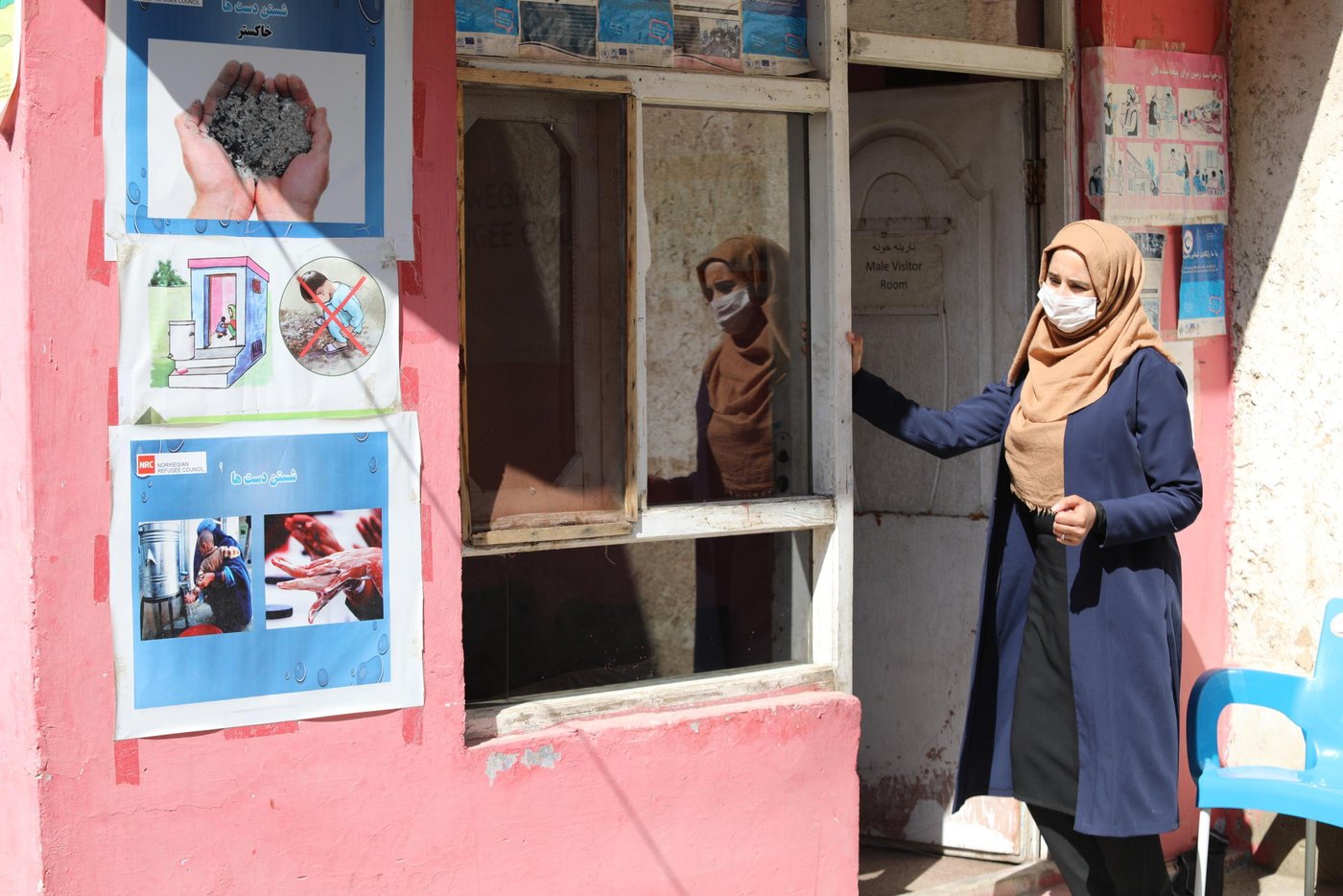We are concerned about the possible spread of the virus amongst the already vulnerable internally displaced population. In Kabul we are assisting displaced people in settlements to reduce the risk of spreading the coronavirus.
Need for further financial support
But there is a need for further financial support, especially for hygiene kits. There are gaps in the coverage. It is difficult for displaced people to follow basic preventative measures due to the lack of hygiene facilities.
NRC is working in 20 settlements that, between them, are home to 4,000 families and 35,000 individuals. Most of these people are internally displaced within Afghanistan, while some are returnees who have been living as refugees in neighbouring countries like Iran and Pakistan.
One of them is Shayista Gul, 60. She is sitting together with her son Esmatullah, 17, in front of their makeshift shelter on the outskirts of Kabul city.
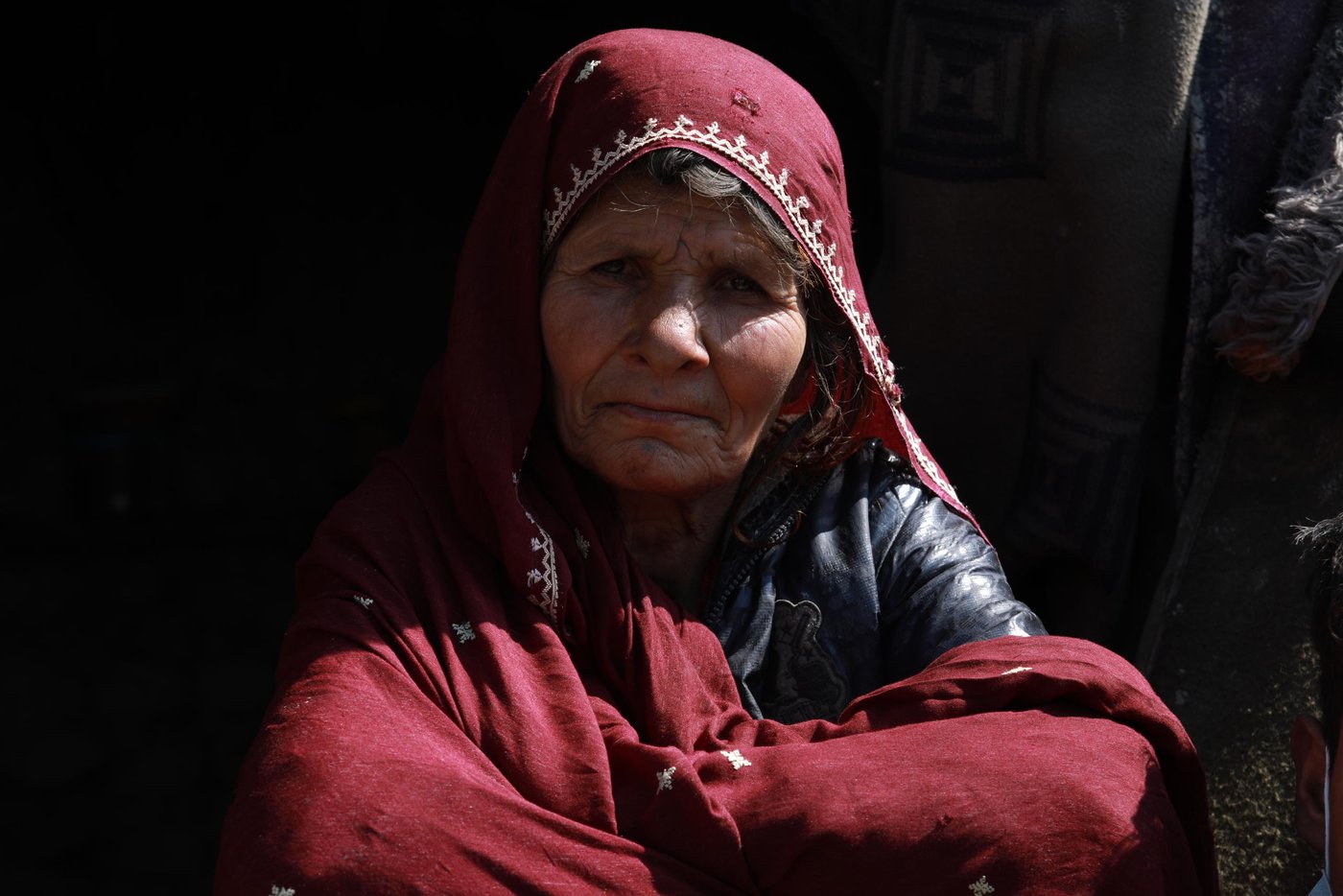
“Can’t afford to buy soap”
“Since the outbreak of this disease the price of food has doubled. I went to a nearby shop this morning to buy soap and detergent, but I could not buy it as the price had increased. Now, I’m washing my clothes with just water without using any detergent,” she says.
Shayista’s family has been living in this settlement for 13 years since they returned from Pakistan, where they lived as a refugees. The family has had no source of income since Shayista’s husband, who was the primary earner, was killed in an explosion in eastern Nangarhar province. Now, 15 people, including Shayista’s daughter, who also lost her husband in the same explosion, are living in a makeshift two-room home.
Inside the settlement, NRC is running a camp management centre. Our staff are guiding camp residents on prevention measures and training them in how to reduce any potential risk of infection to themselves and their families.
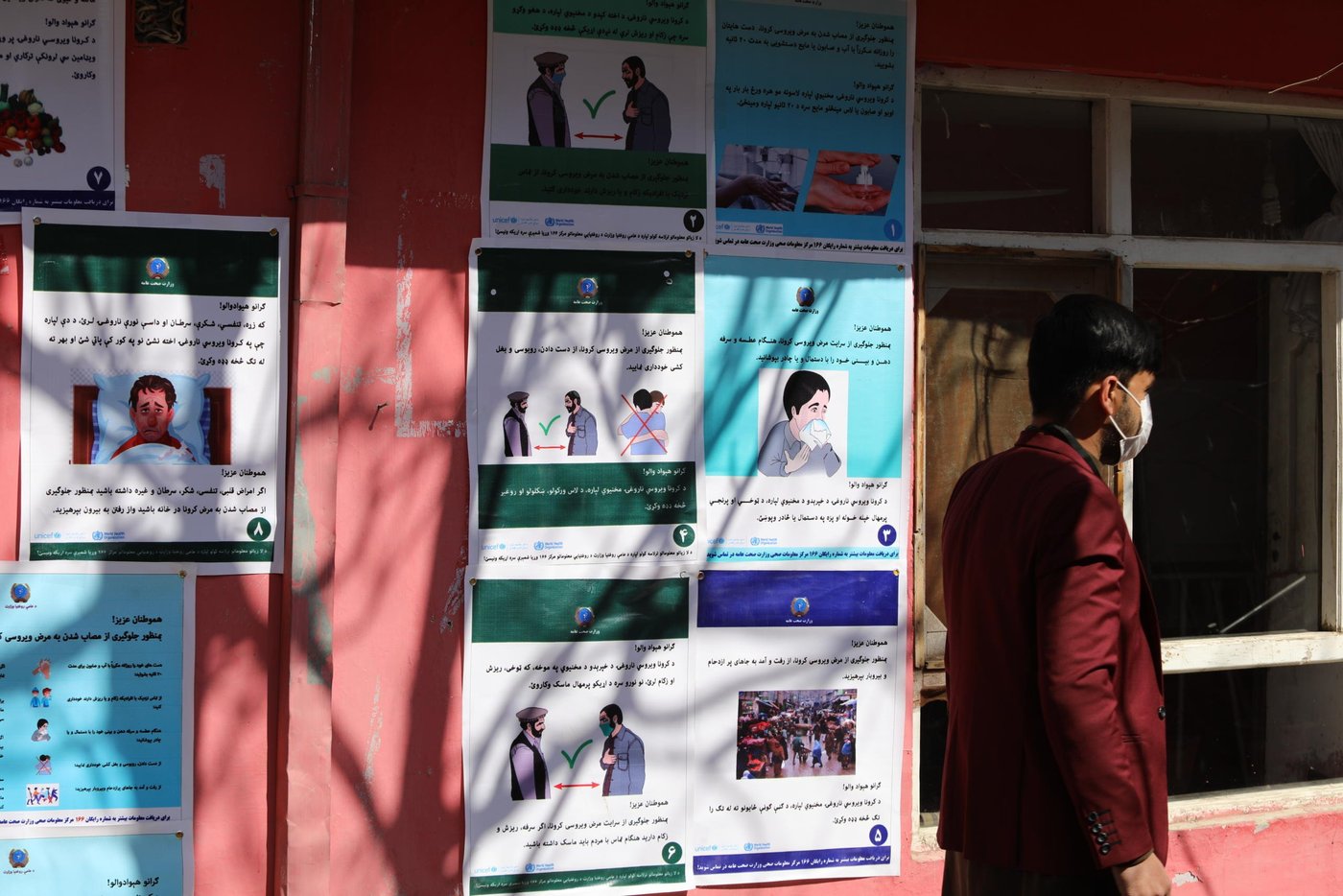
Rely on community donations
“We usually rely on community donations here and I heard that the price of a bag of flour had increased by 1,200 Afghani (approx. USD 16) yesterday. If this is the case, those who were helping us out might not have enough food for themselves and therefore won’t be able to help us,” says Shayista Gul.
She is afraid that things will get worse in the coming days and weeks. If shops begin to close there won’t be enough food.
“Then we will be left hungry and might lose our loved ones. Even if the government asks us to stay in our homes, we can’t. We have to collect scrap to feed our children. If not, we die out of hunger. If the coronavirus does not kill us, hunger will, definitely.”
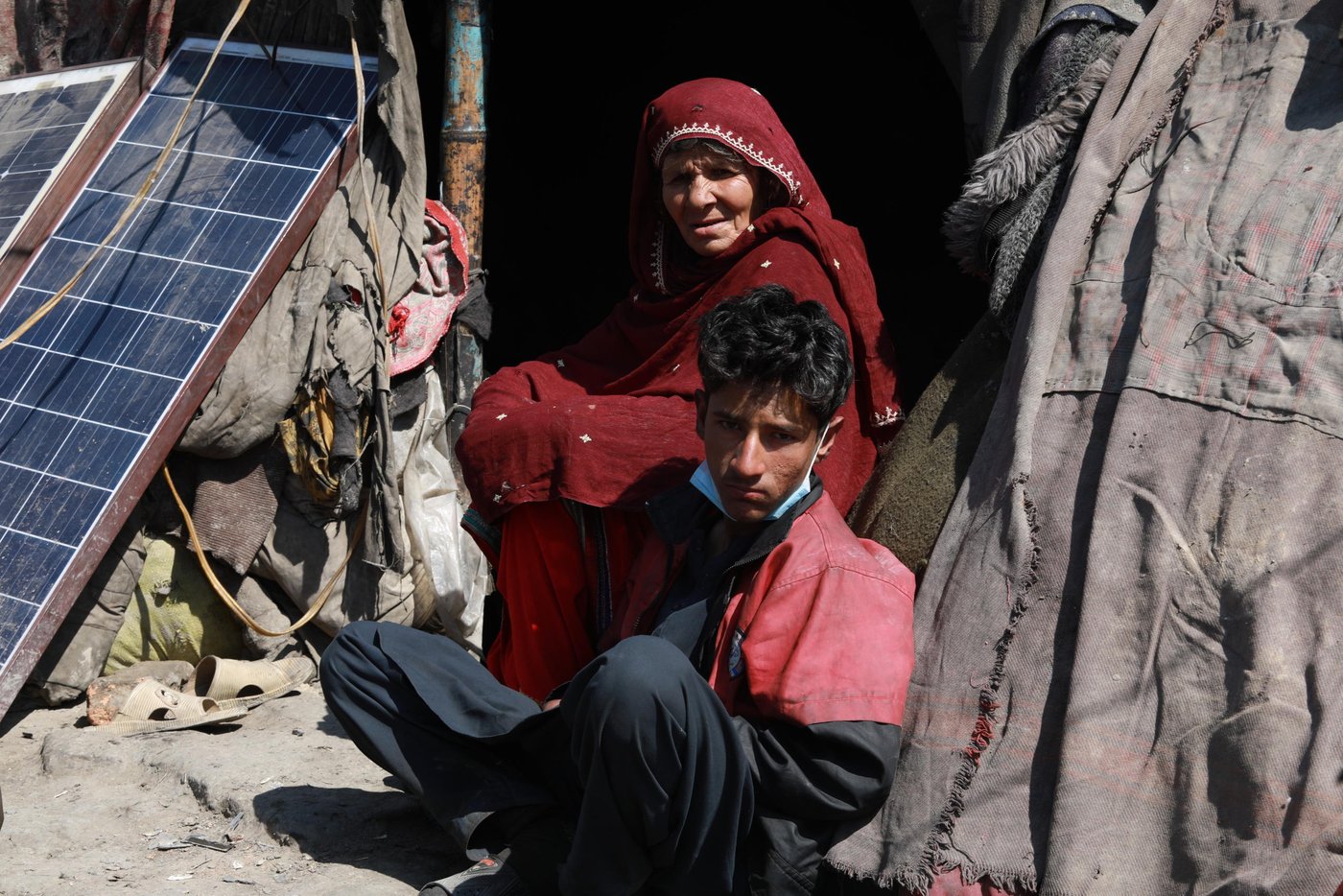
Another elderly resident in the settlement is Sharbat Khan, 80. He is not afraid of the virus, and sees no other alternative than to keep on working to get food on the table.
“We have heard that we should keep ourselves clean. Not touch our nose, mouth and eyes. But we have to continue living a normal life and can’t change our routine. We can’t ration food as we can’t afford to and there is no place to store it. We can’t limit our movement either. The moment we stop our work, we no longer have enough to eat.”
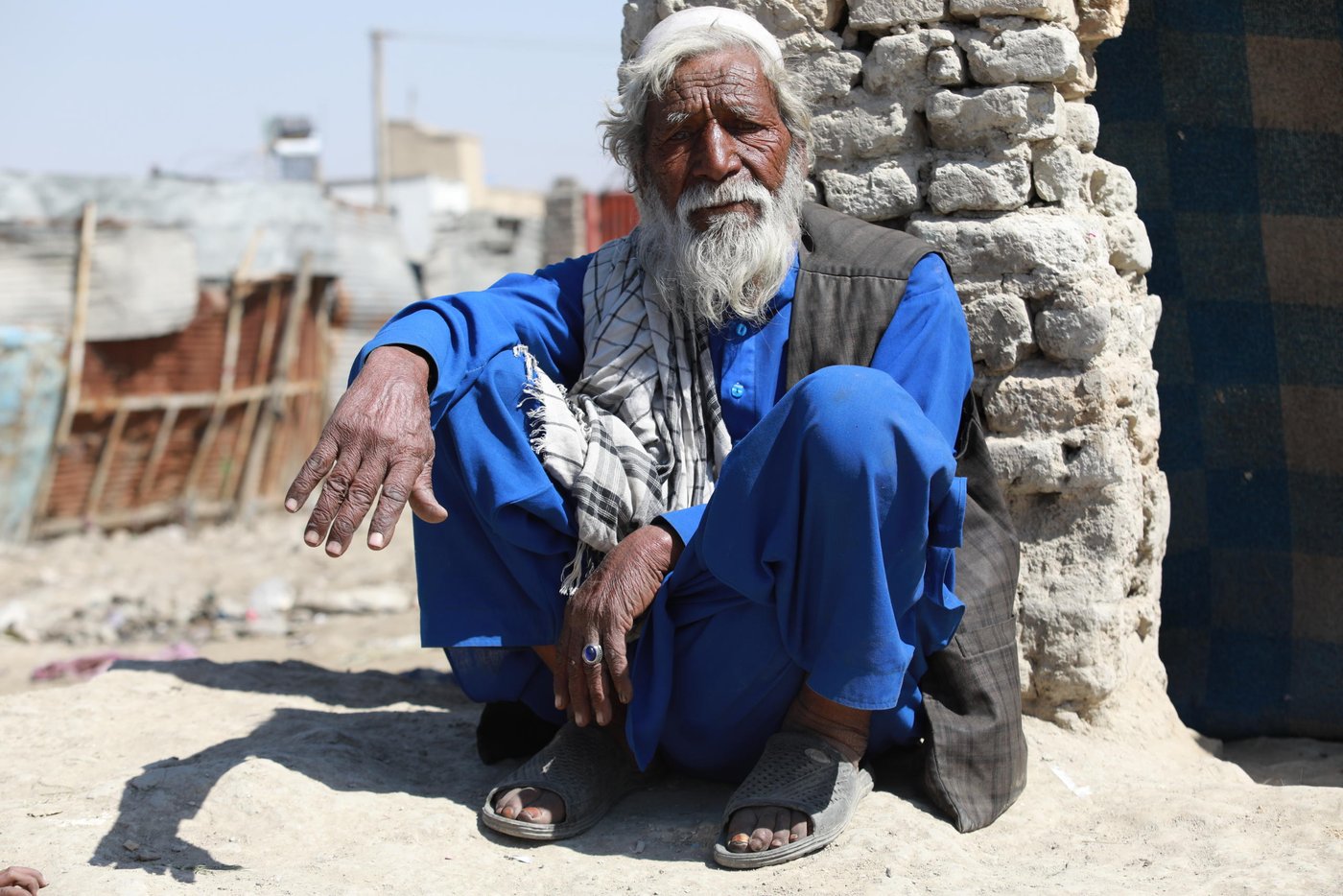
84 per cent of the world’s 70.8 million displaced people are being hosted by low or middle-income nations which have relatively weak health, water and sanitation systems. We also see that refugees and internally displaced people often find themselves living in places that are overcrowded and where health and other services are already overstretched or poorly resourced.
NRC is concerned about the possible spread of the virus amongst the already vulnerable displaced populations.
NRC has been working in Afghanistan since 2003 and is now one of the largest humanitarian organisations in the war-torn country. As of January 2020, we had more than 1,300 employees reaching out to 600,000 internally displaced Afghans in 16 provinces, including Kabul.


